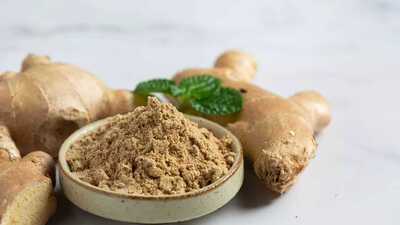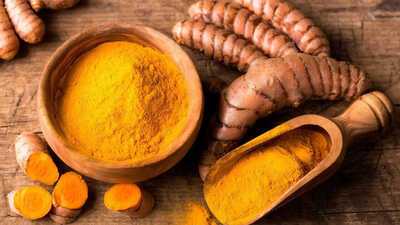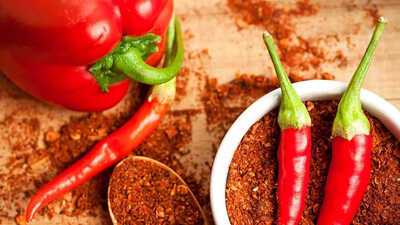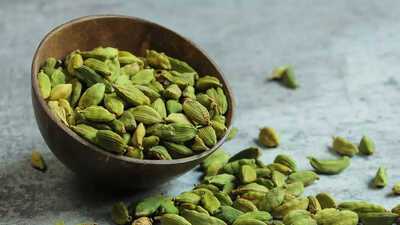Maintaining healthy cholesterol levels is more than just a number on a lab report; it’s a cornerstone of a strong, healthy heart. While medications play a vital role for some, nature has gifted us with simple, everyday ingredients that can support cardiovascular health naturally. Imagine boosting your heart health with the very spices already sitting in your kitchen! From aromatic seeds to pungent roots, these six common spices aren’t just flavour enhancers; they’re powerful allies in lowering cholesterol, improving blood circulation, and keeping your heart in top shape. Know how these culinary wonders can transform your wellness journey.
From cinnamon to cayenne: Everyday spices that support healthy cholesterol
According to a study published in PMC certain everyday spices can significantly support heart health. The research highlights that spices like cinnamon not only add flavour to meals but may also help lower total cholesterol, LDL cholesterol, and triglycerides. Incorporating these natural ingredients into your diet could be a simple yet effective way to boost cardiovascular wellness while enjoying delicious, aromatic flavours.
1. Cinnamon
Cinnamon is a versatile spice that not only enhances the flavour of dishes but also offers heart health benefits. Studies suggest that cinnamon can help lower LDL (bad) cholesterol and triglycerides while potentially increasing HDL (good) cholesterol. Its active compound, cinnamaldehyde, possesses anti-inflammatory properties that may contribute to these effects.

How to use:
Sprinkle ground cinnamon on oatmeal, smoothies, or baked goods.
Add a cinnamon stick to your tea or coffee.
2. Garlic powder
Garlic has long been celebrated for its medicinal properties, particularly in supporting heart health. Allicin, a compound found in garlic, may help reduce total cholesterol levels and improve blood circulation.

How to use:
Incorporate minced garlic into salad dressings, soups, and stir-fries.
Roast whole garlic cloves for a milder flavour.
3. Ginger powder
Ginger is not only a popular culinary ingredient but also a potent spice for heart health. Research indicates that ginger can lower LDL cholesterol and triglyceride levels. Its bioactive compounds, such as gingerol, possess anti-inflammatory and antioxidant properties that may contribute to these benefits.

How to use:
Add fresh ginger slices to hot water for a soothing tea.
Grate ginger into smoothies, marinades, or stir-fries.
4. Turmeric
Turmeric contains curcumin, a compound known for its anti-inflammatory and antioxidant effects. Some studies suggest that curcumin may help lower LDL cholesterol levels and improve overall lipid profiles.

How to use:
Incorporate turmeric into curries, soups, and rice dishes.
Mix turmeric with warm milk for a traditional "golden milk" beverage.
5. Fenugreek
Fenugreek seeds are rich in soluble fibre, which can help reduce cholesterol absorption in the intestines. Studies have shown that fenugreek may lower total cholesterol and LDL cholesterol levels, making it a valuable addition to a heart-healthy diet.

How to use:
Soak fenugreek seeds overnight and consume them in the morning.
Add ground fenugreek seeds to curries or sprinkle on salads.
6. Cayenne pepper
Cayenne pepper contains capsaicin, a compound that may help lower cholesterol levels by increasing metabolism and promoting fat oxidation. While more research is needed, incorporating cayenne pepper into your diet can add a spicy kick along with potential health benefits.

How to use:
Sprinkle cayenne pepper on roasted vegetables or popcorn.
Add a pinch to soups, stews, or marinades.
7. Cardamom
Cardamom is a fragrant spice that may help improve blood lipid profiles. Some studies suggest that cardamom can reduce total cholesterol and triglyceride levels while also supporting heart health with its antioxidant properties.

How to use:
Add crushed cardamom to teas, coffee, or desserts.
Use in curries, rice dishes, or smoothies for a warming flavour.
8. Cloves
Cloves are rich in antioxidants and have anti-inflammatory properties that may help lower LDL cholesterol and improve overall heart health. Their potent compounds, including eugenol, contribute to cardiovascular benefits.

How to use:
Add whole cloves to hot beverages, rice, or stews.
Use ground cloves in baking, spice mixes, or marinades.
Disclaimer: This article is for informational purposes only and does not constitute medical advice. Always consult a qualified healthcare professional before making any changes to your health routine or treatment.
Also read | Green Apple vs. Red Apple: Which is better for health, weight management, and overall wellness
From cinnamon to cayenne: Everyday spices that support healthy cholesterol
According to a study published in PMC certain everyday spices can significantly support heart health. The research highlights that spices like cinnamon not only add flavour to meals but may also help lower total cholesterol, LDL cholesterol, and triglycerides. Incorporating these natural ingredients into your diet could be a simple yet effective way to boost cardiovascular wellness while enjoying delicious, aromatic flavours.
1. Cinnamon
Cinnamon is a versatile spice that not only enhances the flavour of dishes but also offers heart health benefits. Studies suggest that cinnamon can help lower LDL (bad) cholesterol and triglycerides while potentially increasing HDL (good) cholesterol. Its active compound, cinnamaldehyde, possesses anti-inflammatory properties that may contribute to these effects.

How to use:
Sprinkle ground cinnamon on oatmeal, smoothies, or baked goods.
Add a cinnamon stick to your tea or coffee.
2. Garlic powder
Garlic has long been celebrated for its medicinal properties, particularly in supporting heart health. Allicin, a compound found in garlic, may help reduce total cholesterol levels and improve blood circulation.
How to use:
Incorporate minced garlic into salad dressings, soups, and stir-fries.
Roast whole garlic cloves for a milder flavour.
3. Ginger powder
Ginger is not only a popular culinary ingredient but also a potent spice for heart health. Research indicates that ginger can lower LDL cholesterol and triglyceride levels. Its bioactive compounds, such as gingerol, possess anti-inflammatory and antioxidant properties that may contribute to these benefits.
How to use:
Add fresh ginger slices to hot water for a soothing tea.
Grate ginger into smoothies, marinades, or stir-fries.
4. Turmeric
Turmeric contains curcumin, a compound known for its anti-inflammatory and antioxidant effects. Some studies suggest that curcumin may help lower LDL cholesterol levels and improve overall lipid profiles.
How to use:
Incorporate turmeric into curries, soups, and rice dishes.
Mix turmeric with warm milk for a traditional "golden milk" beverage.
5. Fenugreek
Fenugreek seeds are rich in soluble fibre, which can help reduce cholesterol absorption in the intestines. Studies have shown that fenugreek may lower total cholesterol and LDL cholesterol levels, making it a valuable addition to a heart-healthy diet.

How to use:
Soak fenugreek seeds overnight and consume them in the morning.
Add ground fenugreek seeds to curries or sprinkle on salads.
6. Cayenne pepper
Cayenne pepper contains capsaicin, a compound that may help lower cholesterol levels by increasing metabolism and promoting fat oxidation. While more research is needed, incorporating cayenne pepper into your diet can add a spicy kick along with potential health benefits.
How to use:
Sprinkle cayenne pepper on roasted vegetables or popcorn.
Add a pinch to soups, stews, or marinades.
7. Cardamom
Cardamom is a fragrant spice that may help improve blood lipid profiles. Some studies suggest that cardamom can reduce total cholesterol and triglyceride levels while also supporting heart health with its antioxidant properties.
How to use:
Add crushed cardamom to teas, coffee, or desserts.
Use in curries, rice dishes, or smoothies for a warming flavour.
8. Cloves
Cloves are rich in antioxidants and have anti-inflammatory properties that may help lower LDL cholesterol and improve overall heart health. Their potent compounds, including eugenol, contribute to cardiovascular benefits.

How to use:
Add whole cloves to hot beverages, rice, or stews.
Use ground cloves in baking, spice mixes, or marinades.
Disclaimer: This article is for informational purposes only and does not constitute medical advice. Always consult a qualified healthcare professional before making any changes to your health routine or treatment.
Also read | Green Apple vs. Red Apple: Which is better for health, weight management, and overall wellness
You may also like

Tennis Premier League: Bhupathi shares excitement ahead of Season 7 auctions

'My house is invaded by ladybirds every year - I'm absolutely petrified by them'

UK investors to invest in Maharashtra: CM Fadnavis

Priyanka Gandhi slams Centre for not waiving loans of Wayanad landslide victims

Kemi Badenoch pledges to scrap Stamp Duty as Tories desperately battle for attention





